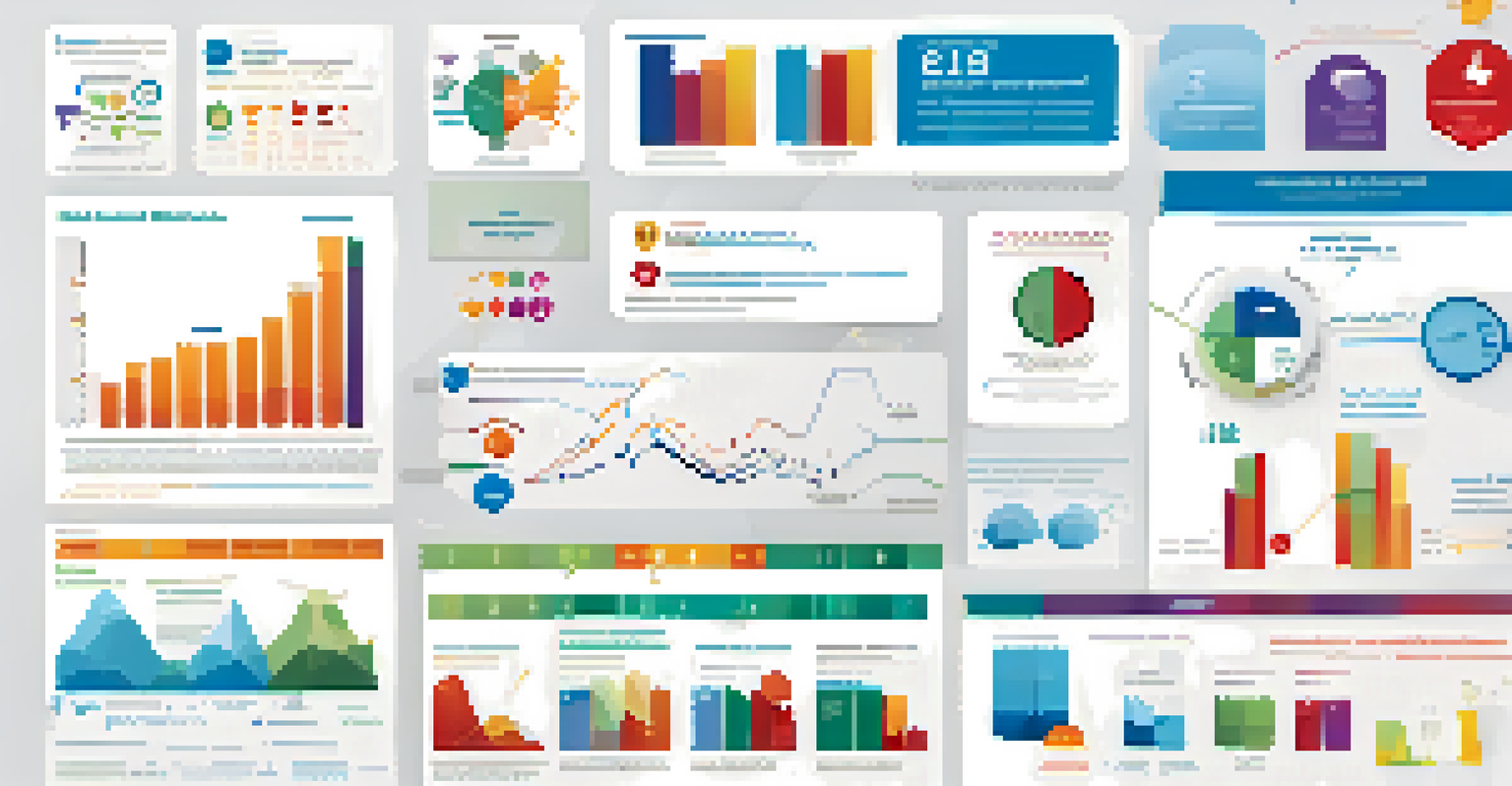Evaluating Health Equity Initiatives: Measuring Impact and Success

Understanding Health Equity: A Foundation for Initiatives
Health equity refers to the fair and just opportunity for everyone to attain their highest level of health. This means addressing social determinants of health, such as income, education, and environment, which can greatly influence outcomes. By understanding health equity, we lay the groundwork for creating initiatives aimed at reducing disparities among different populations.
Health equity means that everyone has a fair and just opportunity to be as healthy as possible.
For instance, consider a community with limited access to healthcare services. A health equity initiative might focus on mobile clinics that bring care directly to underserved areas. This not only increases access but also fosters trust and engagement within the community, which are vital for successful health outcomes.
Ultimately, grasping the principles of health equity helps stakeholders design initiatives that are inclusive and impactful. It sets the stage for evaluating their effectiveness in addressing the root causes of health disparities.
Identifying Key Metrics for Measuring Impact
To evaluate health equity initiatives effectively, it's crucial to identify the right metrics. These could include access to care, health outcomes, and patient satisfaction among different demographic groups. By establishing clear metrics, organizations can measure progress and pinpoint areas that need improvement.

For example, a health program aimed at reducing diabetes rates might track changes in blood sugar levels or the number of participants attending educational workshops. By comparing data across various populations, it's easier to see who benefits and who might be left behind.
Health Equity Requires Inclusive Initiatives
Creating health equity initiatives involves addressing social determinants and ensuring access for underserved populations.
Incorporating qualitative metrics, such as community feedback, can also provide a richer understanding of an initiative's impact. This holistic approach ensures that evaluations capture not just numbers, but also the lived experiences of those affected.
Engaging Stakeholders for Comprehensive Evaluation
Engaging stakeholders, including community members, healthcare providers, and policymakers, is essential for a comprehensive evaluation. Their insights can shed light on the effectiveness of initiatives and help identify potential barriers. When stakeholders are involved, evaluations become more relevant and grounded in real-world experiences.
To achieve health equity, we must eliminate barriers to health such as poverty, discrimination, and their consequences.
For instance, a local health department might host focus groups to gather feedback on a newly implemented health program. This feedback can reveal whether the initiative meets the community's needs or if adjustments are necessary. Engaging with stakeholders not only enhances the evaluation process but also fosters a sense of ownership and accountability.
Moreover, collaboration can lead to innovative solutions that might not have been considered otherwise. By bringing diverse perspectives together, initiatives can be refined to better serve the community and achieve desired outcomes.
Utilizing Data Analytics to Track Progress
Data analytics plays a pivotal role in tracking the progress of health equity initiatives. By analyzing data over time, organizations can identify trends, measure success, and make informed decisions for future actions. This can range from simple spreadsheet analysis to advanced statistical methods that reveal deeper insights.
For example, a city may analyze hospital admission rates for chronic illnesses across different neighborhoods. If certain areas show higher rates, this data can inform targeted interventions, such as preventive health campaigns or resource allocation. Utilizing data effectively can highlight not just achievements but also persistent gaps in health equity.
Data Analytics Enhance Initiative Impact
Utilizing data analytics allows organizations to track progress, identify trends, and inform targeted interventions.
Additionally, visualizing data through graphs and dashboards can make findings more accessible to a broader audience. This transparency can enhance community trust and encourage further collaboration between stakeholders.
Adapting Strategies Based on Evaluation Findings
Once evaluations are complete, the real work begins: adapting strategies based on what the findings reveal. Flexibility is crucial; initiatives must be willing to evolve as new information becomes available. This adaptability can mean the difference between a program that stagnates and one that continues to thrive.
For instance, if an initiative aimed at improving mental health access finds that certain demographics are underrepresented, it may need to adjust its outreach strategies. This could involve partnering with trusted community organizations to better connect with those groups. By responding to evaluation results, initiatives can remain relevant and effective.
Moreover, sharing lessons learned with other organizations can foster a culture of continuous improvement. By collaborating and sharing best practices, the entire field of health equity can advance more rapidly.
The Role of Policy in Sustaining Health Equity Initiatives
Sustaining health equity initiatives often requires supportive policies that reinforce their goals. Policymakers play a critical role in creating an environment conducive to long-term success. This might include funding, legislation, or community support that aligns with the initiative's objectives.
For example, if a community health initiative successfully reduces smoking rates, local leaders might be compelled to implement policies that restrict tobacco sales near schools. Such policies can help maintain the momentum gained through the initiative while addressing broader public health concerns.
Policies Sustain Health Equity Efforts
Supportive policies are essential for maintaining the momentum of health equity initiatives and ensuring their long-term success.
Therefore, engagement with policymakers is vital not just for securing resources but also for ensuring that health equity remains a priority on the agenda. When policies reflect the values of equity and justice, initiatives can flourish sustainably.
Celebrating Successes and Sharing Best Practices
Celebrating successes, no matter how small, is essential in the journey toward health equity. Acknowledging achievements boosts morale and encourages continued efforts among stakeholders. It also highlights the positive impact of initiatives on community health and well-being.
For instance, if a program reduces hospital readmission rates for a specific population, showcasing this success can inspire similar initiatives in other areas. Sharing stories of triumph fosters a sense of community and motivates others to engage in the fight for health equity.

Moreover, documenting and disseminating best practices can create a ripple effect, leading to broader changes in health systems. When communities learn from each other's successes and challenges, they can collectively move toward a healthier future.